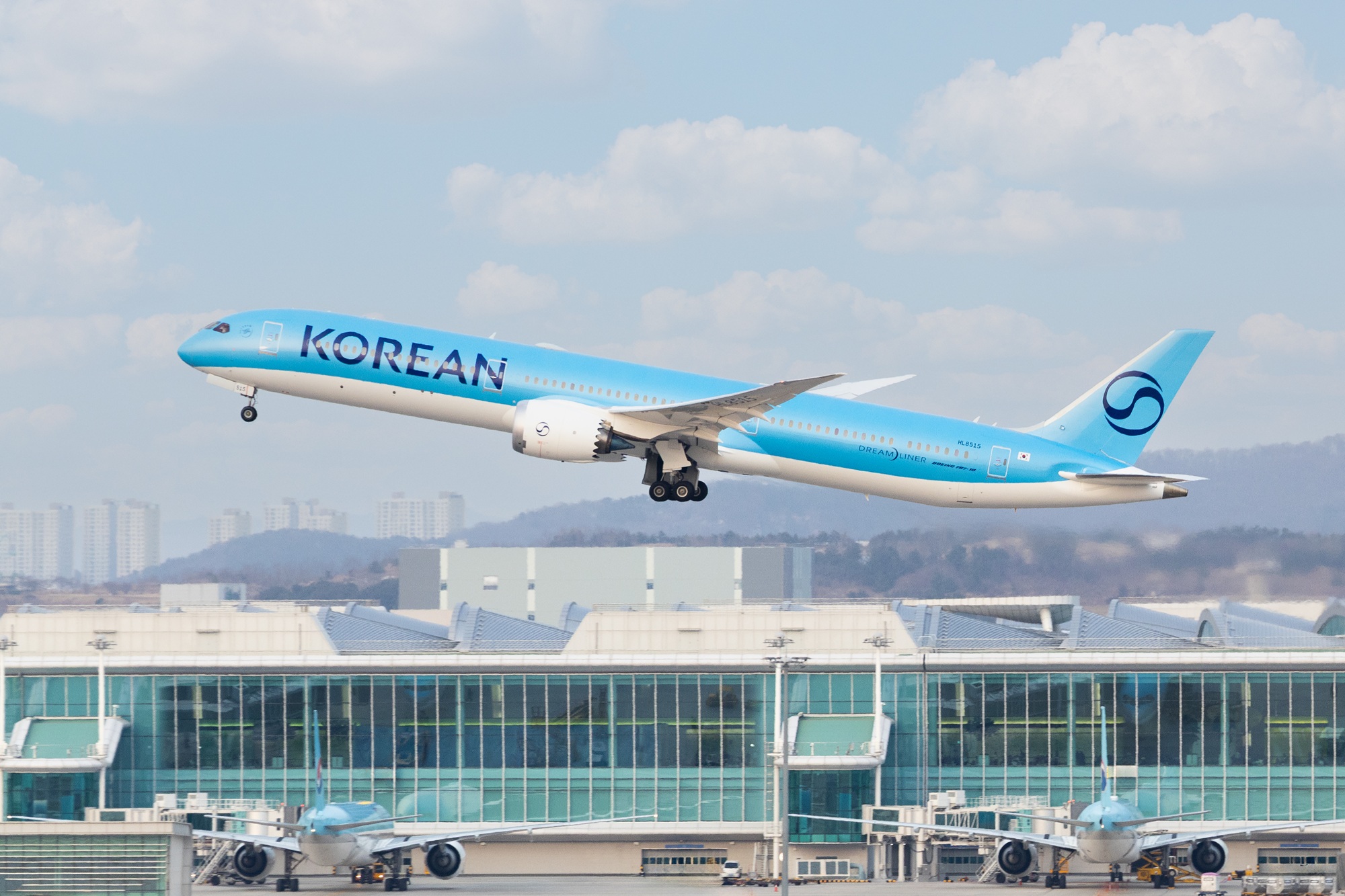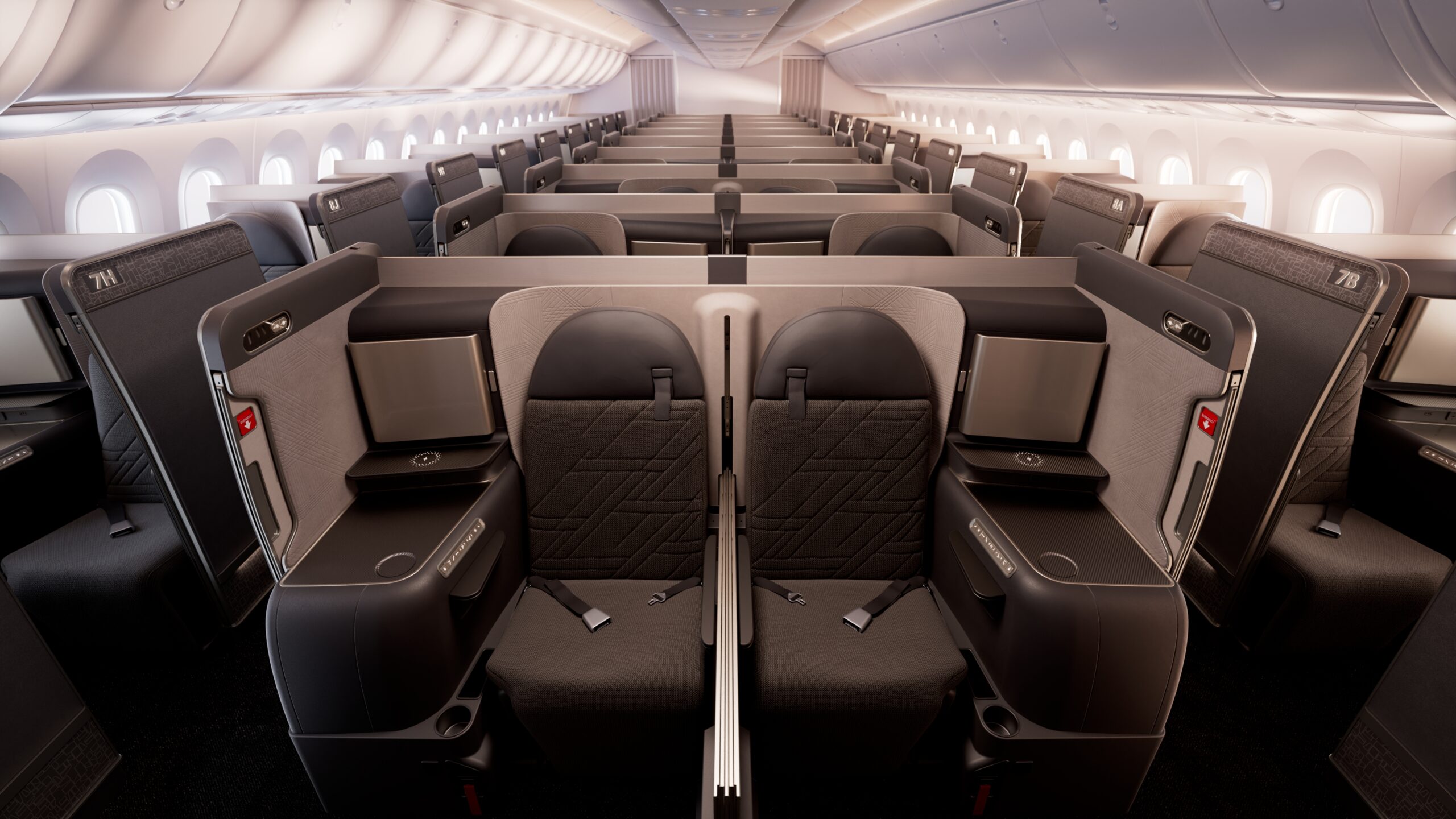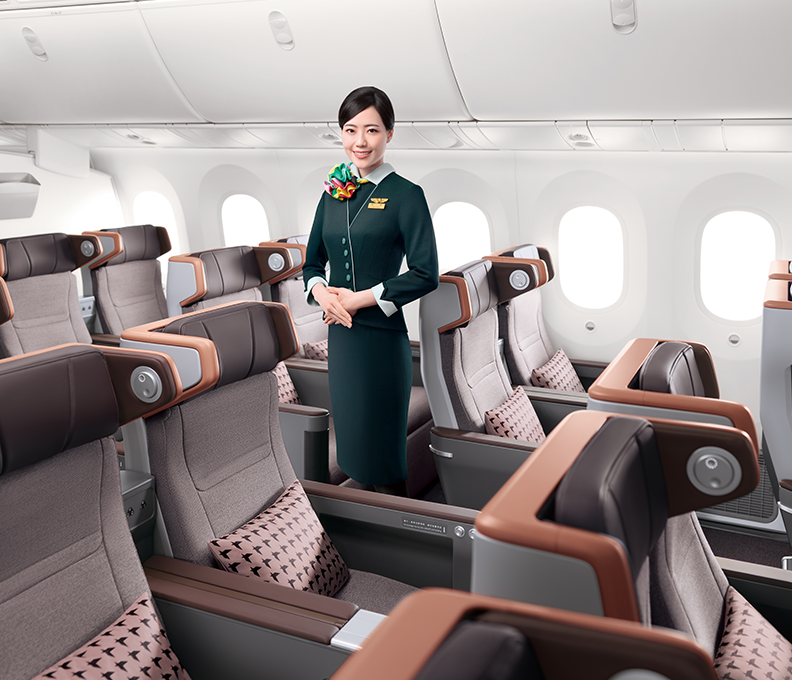What the Korean Air–Asiana Merger Means for Global Business Travelers
Korean Air’s takeover of Asiana upends Asian aviation, sparking fierce global competition and reshaping business travel across alliances and markets
September 2, 2025

Photo: Courtesy of Korean Air
In a pivotal move for global business travelers, Korean Air is set to become a true mega carrier with the completion of its merger with Asiana Airlines by January 2027. The integration will unify the two carriers under the Korean Air brand, delivering a seamless, customer-centric experience designed with the modern executive in mind.

Photo: Korean Air EVP Jin Ho Lee. Courtesy of Korean Air
We sat down with Jin Ho Lee, Senior Vice President and Head of the Americas Regional Headquarters at Korean Air, to learn how this transformation will reshape business travel between North America and Asia.
Q: What can business travelers expect once the merger is fully realized?
Jin Ho Lee: Business travelers can look forward to a seamless and significantly expanded travel experience. The integration allows us to expand our global footprint, offering more flight options, improved schedules, and enhanced service—all under the trusted Korean Air brand.
By early 2027, we’ll operate:
- 160+ weekly flights from 13 North American cities, including Los Angeles, New York, San Francisco, Dallas, Chicago, and Vancouver
- 1,000+ weekly flights serving 68 key destinations in Asia, from financial hubs like Tokyo, Shanghai, Beijing, and Hong Kong to fast-growing markets like Da Nang, Cam Ranh, Bali, Cebu, and Chengdu
- 450+ new route combinations via Seoul’s Incheon International Airport, creating one of the most comprehensive transpacific networks available
This expanded connectivity brings greater access not just to Asia’s major financial centers, but also to smaller cities previously served solely by Asiana.

Photo: Courtesy of Korean Air
We’re also unveiling newly renovated premium lounges, beginning with our flagship facilities at Incheon International Airport (ICN) in August 2025, followed by Los Angeles International Airport (LAX) in January 2026 and New York’s John F. Kennedy International Airport (JFK) in June 2026.
Q: How will this merger save time and reduce stress for business travelers?
Jin Ho Lee: Time is a business traveler’s most valuable resource. Post-integration, we’re redesigning our schedules to give travelers more flexibility and efficiency.
Expect:
- Three daily departure windows—morning, afternoon, and evening—on major routes like JFK–ICN and LAX–ICN
- Optimized arrival and departure times to support same-day meeting capabilities in many Asian cities
This level of frequency and choice allows business travelers to fly when it suits them, enabling quicker turnarounds and fewer scheduling headaches.
Q: Why is Incheon International Airport such a strong advantage for Korean Air passengers?
Jin Ho Lee: Incheon consistently ranks among the world’s best airports for a reason—it’s fast, premium, and highly efficient.
For business travelers, Incheon offers:
- Newly upgraded Prestige and First Class Lounges featuring workspaces, quiet zones, wellness services, and curated dining
- Award-winning retail and dining, including luxury brands and authentic Korean cuisine
- Complimentary cultural tours for layovers between 4–24 hours, offering a meaningful way to experience Korea

Photo: Courtesy of Korean Air
Incheon isn’t just a connection, it’s a value-added part of the journey that enhances comfort, productivity, and cultural experience.
Q: How does Korean Air’s partnership with Delta Air Lines benefit transpacific travelers?
Jin Ho Lee: Now in its seventh year, our joint venture with Delta has served nearly 15 million customers since 2018 and continues to set the standard for transpacific travel.
Together, we offer:
- 19 peak-day departures between Seoul Incheon and the U.S., with coordinated flight schedules for smoother connections
- Access to a combined network of over 260 destinations in the Americas and 65+ cities across Asia
- Reciprocal mileage benefits through SkyPass and SkyMiles, with accrual and redemption across both carriers
- Shared check-in, gate areas, and lounge access in major hub airports, improving efficiency and comfort
- Joint corporate sales and support, streamlining travel management for multinational companies
It’s one of the most integrated airline partnerships in the industry, designed to make crossing the Pacific easier, faster, and more rewarding.
Q: How does Korean Air’s SkyTeam membership benefit corporate travelers?
Jin Ho Lee: As a founding member of SkyTeam, Korean Air delivers significant benefits to frequent flyers, including:
- Mileage accrual and redemption across over 945+ destinations worldwide
- Priority services, including early check-in, expedited boarding, and baggage handling
- Lounge access to over 750 locations globally, including SkyTeam-branded and partner airline lounges in North America, Asia, and Europe
- Elite member recognition across SkyTeam carriers, ensuring a consistent, elevated experience no matter where you fly

Photo: Courtesy of Korean Air
Whether you’re flying Korean Air to Seoul or connecting onward to Mumbai, Sydney, or Beijing on a SkyTeam partner, you’ll enjoy a streamlined and elevated service experience every step of the way.
Q: What’s your vision for Korean Air’s role in the future of business travel?
Jin Ho Lee: Our goal is to redefine transpacific business travel. With this merger, we’re not just offering more flights; we’re delivering a new level of reliability, flexibility, and comfort.
Whether you’re headed to a boardroom in Shanghai, a conference in Jakarta, or a development site in Hanoi, you’ll get there more efficiently with a great choice, shorter layovers, and consistent world-class service.
In 2027 and beyond, Korean Air will be more than an airline; we’ll be your strategic partner in the skies.




